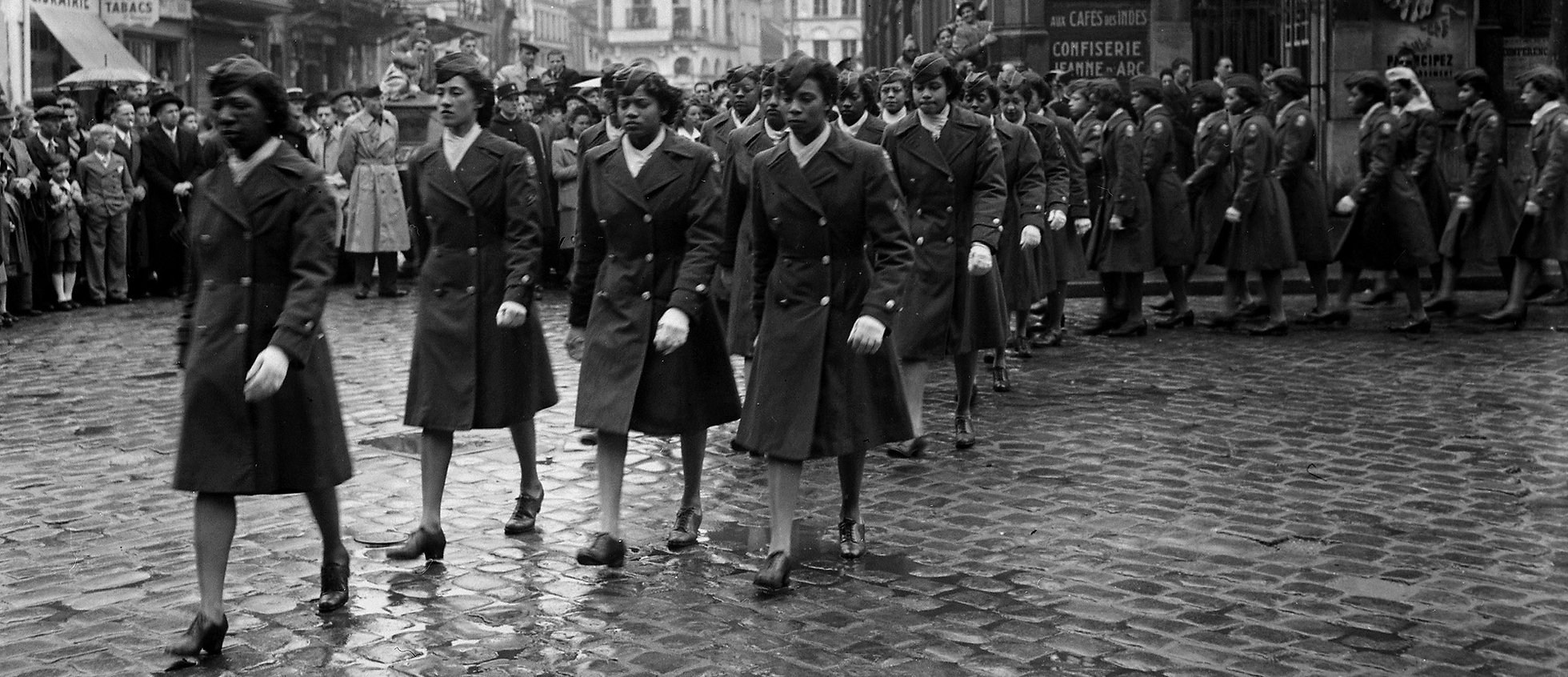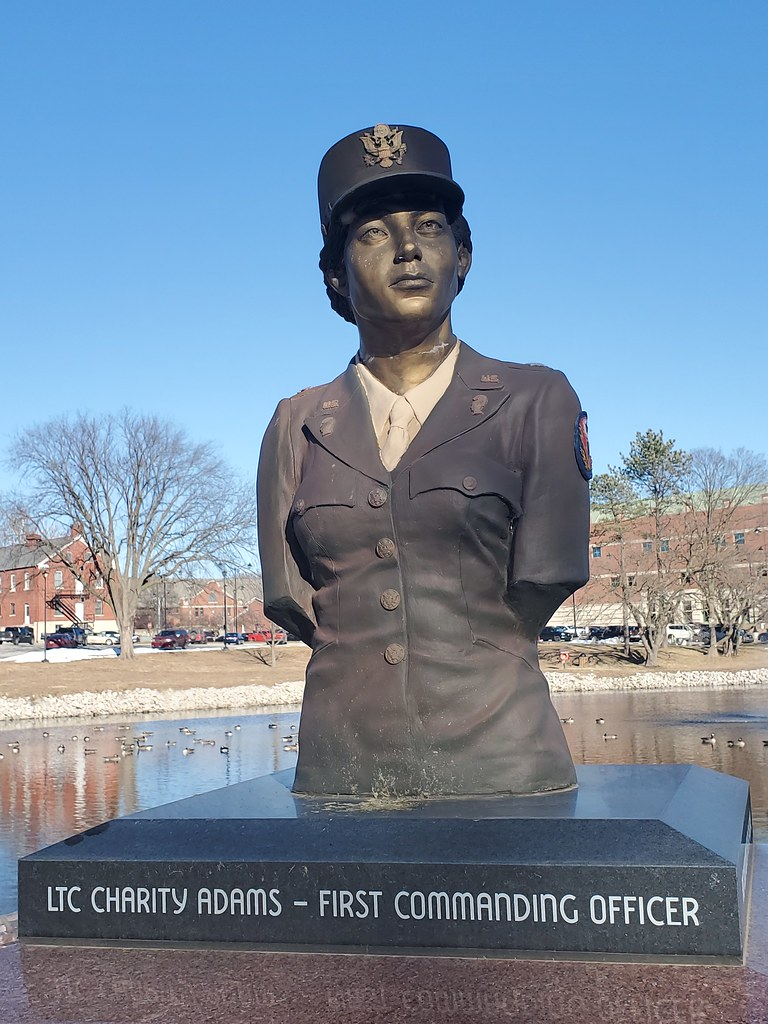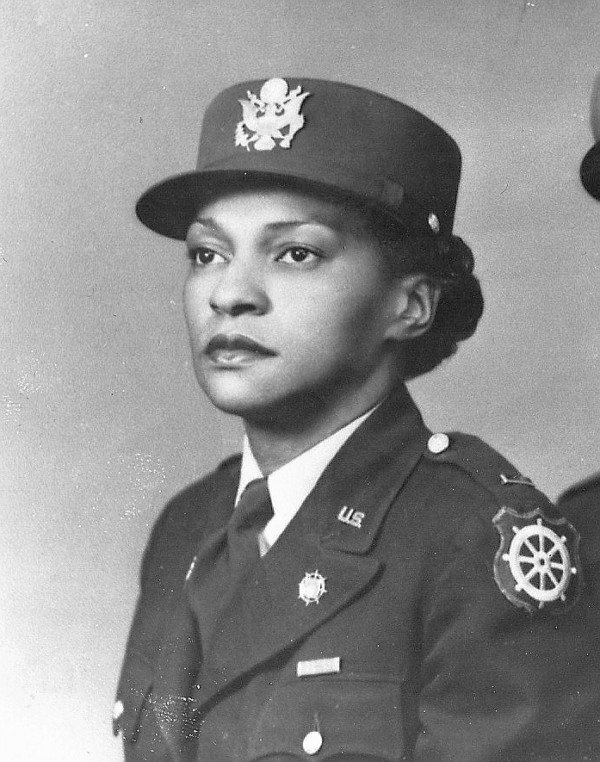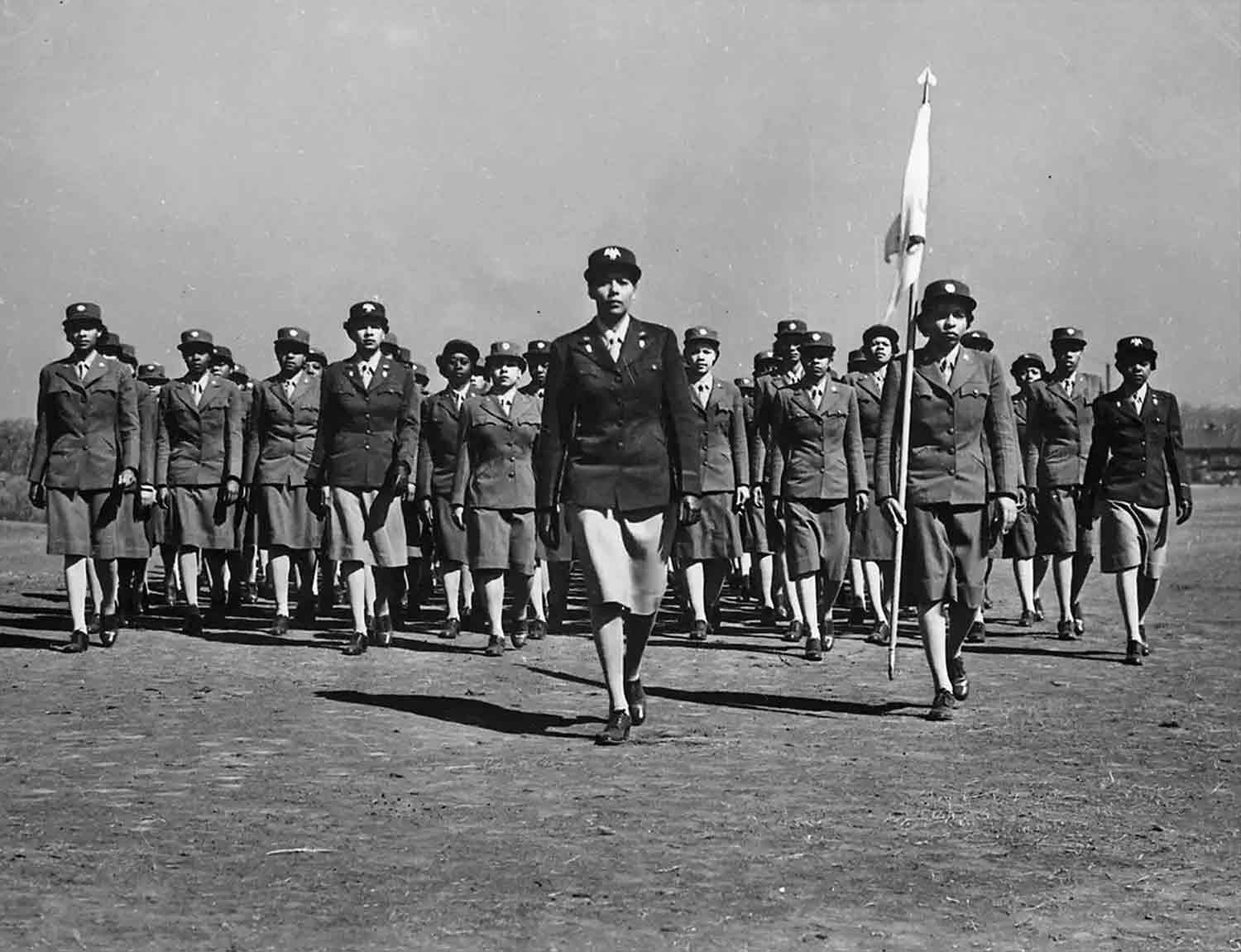The 6888th Central Postal Directory Battalion: Untold Stories and Evermore Lasting Legacy
Quote from Oladosun Joshua Segun on March 15, 2025, 12:33 PM
Imagine getting a letter from home when you're fighting in a war. It means everything, right? Now, picture thousands of soldiers waiting for those letters, but they're stuck in a massive pile of undelivered mail. That's where the women of the 6888th Central Postal Directory Battalion stepped in during World War II. They were a group of Black women who tackled a huge problem and showed the world what they could do. Remembering their story is super important, especially as we look to 2025 and beyond.
The 6888th Central Postal Directory Battalion, also known as the "Six Triple Eight," was an all-Black, all-female unit in the Women's Army Corps (WAC) during World War II. They were led by Major Charity Adams, who was the first African American woman to receive an Army commission.
The Women's Army Corps itself was founded as the Women's Army Auxiliary Corps (WAAC) in 1942 and later became the WAC in 1943. The first director of the WAAC/WAC was Colonel Oveta Culp Hobby, who played a pivotal role in establishing and leading the organization.
Their contributions were groundbreaking, paving the way for greater inclusion and recognition of women, especially African American women, in the military.
The postal service in Europe during WWII was a total mess. Letters and packages piled up, and no one could sort them out. Think of it as a giant, tangled knot of mail.
The mail backlog wasn't just a small problem. It was a huge headache. There were warehouses overflowing with letters and packages. It seemed like an impossible task to sort through it all.
These women faced tough conditions. They worked in cold, damp warehouses, often around the clock. But they were determined to get the mail delivered, no matter what.
Getting mail was a big deal for soldiers. It connected them to their families and friends back home. The 6888th made sure those connections weren't broken. This boosted morale big time.
These women weren't just sorting mail; they were breaking down barriers too. Being Black women in the military during the 1940s wasn't easy. They faced discrimination and segregation every step of the way.
The military wasn't always fair. Black soldiers were often treated differently than white soldiers. The women of the 6888th had to deal with these unfair rules and attitudes.
They had to fight prejudice while also doing their jobs. It was like having two jobs at once. They had to prove themselves every single day.
These women showed amazing courage. Many had personal stories that show how determined they were to serve their country, despite all the obstacles. Their grit is inspiring.
The 6888th didn't just sort mail; they did it fast and efficiently. They were like a well-oiled machine, getting mail to soldiers in record time.
They processed an unbelievable amount of mail each day. We're talking about thousands of letters and packages. They blew everyone away with their speed and accuracy.
They came up with new ways to sort mail faster. They streamlined the process and made it super-efficient. Their techniques were innovative and effective.
Getting mail to soldiers quickly had a real impact on the war. It boosted morale, which helped the soldiers keep fighting. Timely mail delivery was crucial.
It took a while, but the 6888th is finally getting the recognition they deserve. People are starting to learn about their amazing contributions and sacrifices.
For many years, their story was overlooked. It's a shame that it took so long for them to get the credit they deserved. They were true heroes.
Now, they're receiving medals and awards for their service. These honors are a way to say thank you for everything they did. It's a proud moment for them and their families.
Documentaries, books, and memorials are helping to keep their story alive. These resources ensure that future generations will know about the 6888th and their incredible legacy.
The story of the 6888th teaches us important lessons about perseverance, equality, and service. Their experiences can inspire us to overcome challenges and fight for what's right.
Their story shows what you can do when you face adversity head-on. They didn't let prejudice stop them; they kept going and made a difference. This is a powerful message for young people today.
The struggles they faced are still relevant today. We're still fighting for equality and justice for all. Their story reminds us that the fight isn't over yet.
It's important to remember the stories of people who aren't always in the spotlight. The 6888th were unsung heroes, and their story deserves to be told and remembered.
The women of the 6888th Central Postal Directory Battalion accomplished amazing things during WWII. They sorted mountains of mail, broke down barriers, and inspired future generations. It's crucial that we continue to remember their story and honor their legacy. Let's keep learning from their example and working towards a more equal and just world.

Imagine getting a letter from home when you're fighting in a war. It means everything, right? Now, picture thousands of soldiers waiting for those letters, but they're stuck in a massive pile of undelivered mail. That's where the women of the 6888th Central Postal Directory Battalion stepped in during World War II. They were a group of Black women who tackled a huge problem and showed the world what they could do. Remembering their story is super important, especially as we look to 2025 and beyond.
The 6888th Central Postal Directory Battalion, also known as the "Six Triple Eight," was an all-Black, all-female unit in the Women's Army Corps (WAC) during World War II. They were led by Major Charity Adams, who was the first African American woman to receive an Army commission.
The Women's Army Corps itself was founded as the Women's Army Auxiliary Corps (WAAC) in 1942 and later became the WAC in 1943. The first director of the WAAC/WAC was Colonel Oveta Culp Hobby, who played a pivotal role in establishing and leading the organization.
Register for Tekedia Mini-MBA edition 17 (June 9 – Sept 6, 2025) today for early bird discounts. Do annual for access to Blucera.com.
Tekedia AI in Business Masterclass opens registrations.
Join Tekedia Capital Syndicate and co-invest in great global startups.
Register to become a better CEO or Director with Tekedia CEO & Director Program.
Their contributions were groundbreaking, paving the way for greater inclusion and recognition of women, especially African American women, in the military.
The postal service in Europe during WWII was a total mess. Letters and packages piled up, and no one could sort them out. Think of it as a giant, tangled knot of mail.

The mail backlog wasn't just a small problem. It was a huge headache. There were warehouses overflowing with letters and packages. It seemed like an impossible task to sort through it all.
These women faced tough conditions. They worked in cold, damp warehouses, often around the clock. But they were determined to get the mail delivered, no matter what.
Getting mail was a big deal for soldiers. It connected them to their families and friends back home. The 6888th made sure those connections weren't broken. This boosted morale big time.
These women weren't just sorting mail; they were breaking down barriers too. Being Black women in the military during the 1940s wasn't easy. They faced discrimination and segregation every step of the way.
The military wasn't always fair. Black soldiers were often treated differently than white soldiers. The women of the 6888th had to deal with these unfair rules and attitudes.
They had to fight prejudice while also doing their jobs. It was like having two jobs at once. They had to prove themselves every single day.
These women showed amazing courage. Many had personal stories that show how determined they were to serve their country, despite all the obstacles. Their grit is inspiring.
The 6888th didn't just sort mail; they did it fast and efficiently. They were like a well-oiled machine, getting mail to soldiers in record time.

They processed an unbelievable amount of mail each day. We're talking about thousands of letters and packages. They blew everyone away with their speed and accuracy.
They came up with new ways to sort mail faster. They streamlined the process and made it super-efficient. Their techniques were innovative and effective.
Getting mail to soldiers quickly had a real impact on the war. It boosted morale, which helped the soldiers keep fighting. Timely mail delivery was crucial.
It took a while, but the 6888th is finally getting the recognition they deserve. People are starting to learn about their amazing contributions and sacrifices.
For many years, their story was overlooked. It's a shame that it took so long for them to get the credit they deserved. They were true heroes.
Now, they're receiving medals and awards for their service. These honors are a way to say thank you for everything they did. It's a proud moment for them and their families.
Documentaries, books, and memorials are helping to keep their story alive. These resources ensure that future generations will know about the 6888th and their incredible legacy.
The story of the 6888th teaches us important lessons about perseverance, equality, and service. Their experiences can inspire us to overcome challenges and fight for what's right.

Their story shows what you can do when you face adversity head-on. They didn't let prejudice stop them; they kept going and made a difference. This is a powerful message for young people today.
The struggles they faced are still relevant today. We're still fighting for equality and justice for all. Their story reminds us that the fight isn't over yet.
It's important to remember the stories of people who aren't always in the spotlight. The 6888th were unsung heroes, and their story deserves to be told and remembered.
The women of the 6888th Central Postal Directory Battalion accomplished amazing things during WWII. They sorted mountains of mail, broke down barriers, and inspired future generations. It's crucial that we continue to remember their story and honor their legacy. Let's keep learning from their example and working towards a more equal and just world.
Uploaded files:


